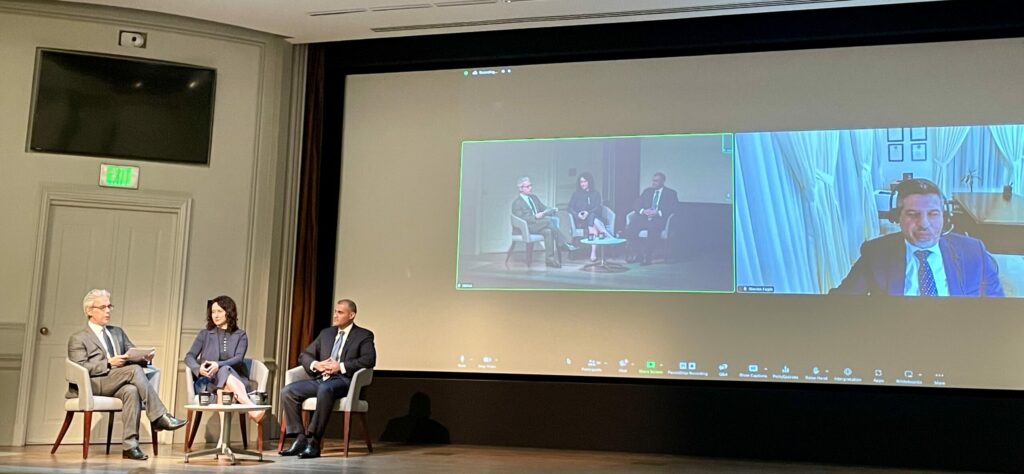For years, blood antiquities have enabled armed conflicts and terrorism across the globe. While no corner of the world is spared by tomb raiders and art smugglers, Yemen and the broader Middle East are under particular attack. The world’s museums have a unique opportunity—and responsibility—to fight back.
On January 27, Tess Davis, the AC’s Executive Director, participated in “Museums and Cultural Heritage Protection: A Case Study of Repatriations to Yemen.” This event, hosted by the Smithsonian National Museum of Asian Art (NMAA), featured Davis alongside political leaders who are diligently working to resolve both the armed conflict and humanitarian crisis in Yemen. These included Steven Fagin, the U.S. Ambassador to Yemen, Timothy A. Lenderking, U.S. Special Envoy for Yemen and His Excellency Mohammed Al-Hadhrami, Ambassador of the Republic of Yemen to the United States.
Davis joined a panel with Ambassador Al-Hadharami and Chase Robinson, Director of the NMAA, titled “A Collective Effort: Preserving Yemen’s Cultural Heritage.” His Excellency the Ambassador detailed Yemen’s example and approach to protecting its culture during conflict, and spoke about the effectiveness of collaborating with the AC. “The first approach [is] just appreciating what are your priorities. For us, we focused with the help of the Antiquities Coalition… on the market. The US by far is the biggest market for arts, so we started to work here… I remember meeting Tess back in 2018 when I was a Deputy Chief of Mission at the Embassy [and] the coalition’s been there [at] my desk wherever I go…The second [approach] is really finding someone that could help you, someone who helped others before. In our case it was the Antiquities Coalition.”

Yemen’s case of using close engagement with the U.S. government to fight antiquities trafficking is a powerful one. Davis expanded on the importance of this cooperation. “Cultural racketeering is not a preservation failure, but a failure of governance, law, diplomacy, civil society, and markets. It cannot be solved by better archaeology—and I say this as a trained archaeologist. It can only be solved by strengthening law enforcement, international cooperation, and market integrity,” Davis shared. To better safeguard cultural heritage as a partner to these governmental organizations, Davis also outlined the steps that museums can take to help stem the tide in Yemen and beyond:
- Understanding that the problem is critical and that museums play a unique role.
- Launching an awareness campaign to help policymakers, the private sector, and the general public better understand the threats from cultural racketeering and how we can fight back.
- Strengthen best practices. It is time to upgrade our strategies, just as criminals have updated theirs, to protect both our cultural heritage and the legitimate art market.
- Capacity building. Training in provenance research and authentication, as well as having dedicated museum staff to research acquisitions and object history, can make a significant difference.
- Treat the issue of cultural racketeering and repatriation as stepping stones, not obstacles.
While these conversations are important, they must be paired with action. Organizations working toward this common goal must continue collaborative efforts to ensure a strong international approach to prevent the looting of antiquities and close loopholes in the art market.
The Antiquities Coalition commends the Smithsonian, the United States, and Yemen for their leadership in protecting cultural heritage and looks forward to our continued collaboration in efforts to combat looting and cultural racketeering.






